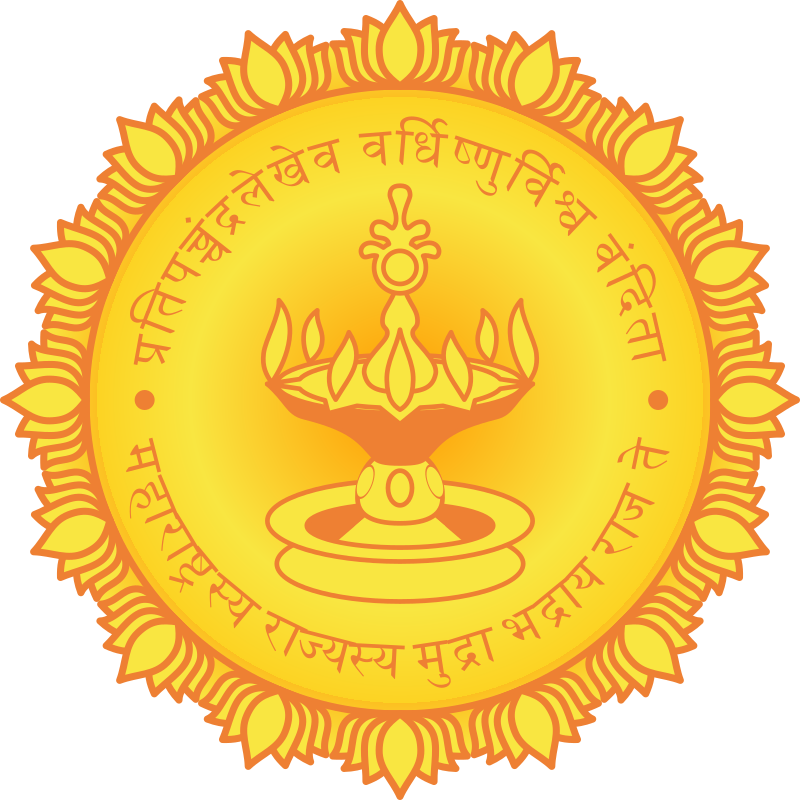Primary Education Department
The Primary Education Department under Zilla Parishad Latur oversees academic functioning and management of primary schools, secondary schools, private aided and unaided schools, and ashram schools in the district. Under the leadership of the Education Officer (Primary), Deputy Education Officers, Group Education Officers, and Center Heads are deployed.
Latur district has 1235 ZP primary schools and 49 ZP secondary schools. Additionally, there are 487 private aided and unaided schools under the department. Among these, there are 270 Marathi medium primary schools, 101 Urdu medium, and 116 English medium primary schools.
The work of supervising and controlling these schools is carried out by the Education Officer (Primary), two Deputy Education Officers (Primary), 10 Group Education Officers, 25 Senior Education Extension Officers, 18 Junior Education Extension Officers, and 102 Center Heads.
Each Education Extension Officer is expected to visit every school at least four times a year. These include one surprise visit, one pre-informed visit, one inspection visit, and one follow-up visit for guidance after inspection.
Center Heads are expected to visit each school in their center at least twice a month. However, due to implementation of Samagra Shiksha Abhiyan and other schemes, the number of visits often exceeds the planned ones.
To provide quality and inclusive primary education to all students.
Ensure 100% student attendance and participation in education. Adopt modern educational methods for holistic child development. Implement the Right to Free and Compulsory Education Act, 2009.
- Organize education committee meetings with participation of Zilla Parishad members.
- Effective implementation and monitoring of various educational schemes.
- Conduct school inspections and implement programs to improve academic quality.
- Distribution of free uniforms and textbooks to students.
- Effective implementation of the school nutrition program.
1) Rajiv Gandhi Student Accident Relief Grant Scheme
- ₹1,50,000 for accidental death and ₹1,00,000 for permanent disability of students from Std. 1 to 12.
- Required documents: Incident report, site panchnama, postmortem report, medical certificate.
2) New India Literacy Program
- Online training and FLNAT certificate for illiterate persons above 15 years of age.
3) Std. 5 to 8 Scholarship Scheme
- ₹3000 to ₹7500 scholarships through MAHADBT portal to eligible students.
- Required documents: Marksheet, bank passbook xerox, school bonafide.
4) NMMS Scholarship Scheme
- ₹12,000 annually, total ₹48,000 for 4 years (to qualifying students).
- Required documents: Income certificate, caste certificate, Aadhaar, bonafide, marksheet.
5) Attendance Allowance for Std. 1 to 4 Girls
- ₹1 per day, annual ₹220 allowance for SC/ST & BPL girls through Taluka Education Officer.
6) Educational Assistance to Children of Primary Teachers
- ₹3000 to ₹8000 for children of teachers enrolled in professional courses at recognized institutions.
7) Aid to Children of Secondary/Higher Secondary Teachers
- ₹3000 to ₹8000 education aid for children of teaching/non-teaching staff pursuing professional courses.
8) Educational Concession for Children of Ex-servicemen
- ₹70 to ₹600 annually for books and uniforms for students from Std. 1 to post-graduation.
9) Free Education from Std. 1 to 10
- Fee, uniform aid ₹3 to ₹6 and exam fee ₹2 to ₹5 for students in recognized unaided institutions.
10) Free Education for Std. 11 & 12 Girls
- ₹83 to ₹89 per student scholarship for girls studying in government/unaided institutions.
11) Free Education for Std. 11 & 12 Boys
- ₹77 annually for aided institutes, ₹250 for unaided, and ₹100–₹250 for vocational education aid.
12) Sanskrit Language Scholarship
- ₹100/month for Std. 9–10 and ₹125/month for Std. 11–12 (for 10 months).
13) Marathi Language Foundation Scheme
- ₹5000/month (total ₹45,000) honorarium to voluntary teachers in Std. 8 to 10 Marathi medium schools.
14) Chhatrapati Rajaram Maharaj SARTHI Scholarship
- Annual ₹9600 for 4 years to NMMS qualified students from Maratha, Kunbi, Kunbi-Maratha groups.
15) Scholarship for Students with Disabilities
- Annual ₹9000 to ₹14600 scholarship for Std. 9 and 10 students with disabilities.
16) Open Merit-based Scholarship
- ₹500 per year scholarship for all Std. 11 and 12 students through MAHADBT.
17) Scholarship for Economically Backward Students
- ₹500 yearly scholarship through MAHADBT for Std. 11 and 12 economically backward students.
18) Mid-Day Meal Scheme
- Nutritious meals provided to students in Std. 1 to 8 of all aided schools.
19) District Bal Bhavan Scheme
- Activities for intellectual development of children aged 6 to 14 years.
20) Integrated Child Development Initiative
- Focus on nutrition, health, hygiene, sports, values, and inclusive education.
21) Digital School Scheme
- Use of projectors, digital content, and e-learning tools for teaching.
22) RTE 25% Reservation Admission Scheme
- Free Std. 1 admission for BPL students in private schools under RTE Act.
23) Reading Movement
- Special initiatives in schools to promote reading habits among students.
24) School Friendship Scheme
- Parent-teacher meetings to re-enroll dropout children into education.
25) Bal Sabha (Children’s Assembly)
- Activities to build confidence, leadership, and communication among students.
26) Mission Quality
- District/Taluka level initiatives for continuous improvement in education quality.
27) Inclusive Education Scheme
- Accessible learning aids and special teachers for children with disabilities.
28) Foundational Literacy & Numeracy (FLN)
- Strengthening reading, writing, and numeracy for Std. 1 to 3 students.
29) E-School Scheme
- Use of mobile apps, tablets, LMS, and digital tools for online learning in schools.
30) Student Tracking System
- System to record each student’s enrollment, attendance, evaluation, and progress.
31) Balbharati Digital Tables & Books
- E-books for Std. 1 to 12 subjects available on balbharati.in.
32) State Council of Educational Research and Training (SCERT) Initiatives
- Teacher training, curriculum reform, assessment, online courses and DIKSHA portal resources.



